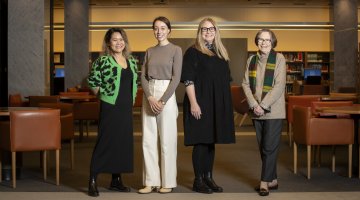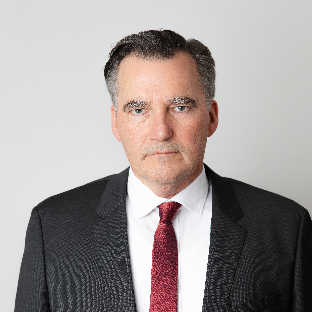Minister for Indigenous Australians
Ballumb Ambul Gadigal yindamarra. Ngadu – yirra bang marang.
In the language of my people, the Wiradjuri
I pay my respects to the Gadigal of the Eora Nation – and honour their custodianship and care for Country.
And I extend that respect to all Aboriginal and Torres Strait Islander people here from all points of the southern sky.
Thank you Yvonne Weldon for the warm Welcome to Country.
To Lord Mayor, Clover Moore –
Thank you for your commitment to the Uluru Statement from the Heart.
And thank you to the entire City Council – for all you are doing to support meaningful constitutional recognition.
I also acknowledge my fellow speakers and panellists:
- Professor Stan Grant
- Noel Pearson
- Thomas Mayo
- Kerry O’Brien
- Professor Anne Twomey
- Shane Phillips
- Dr Shireen Morris
Friends, later this year, you will all be asked a simple question:
Do you support a change to the Constitution to recognise the First Peoples of Australia by establishing an Aboriginal and Torres Strait Islander Voice?
Yes or No.
As my friend Noel Pearson has said:
“We are the generation that finally has the opportunity to settle this question, and it’s a crucial question.”
122 years after the Australian Constitution was formed.
More than 80 years since Yorta Yorta man William Cooper’s petition.
56 years since the 1967 referendum.
30 years since Keating’s Redfern speech.
16 years since Howard promised a referendum on recognition.
15 years since the Apology.
13 years since the expert panel on Constitutional Recognition.
6 years since the Uluru Statement from the Heart.
The question must surely be asked…
How much longer do Aboriginal and Torres Strait Islander people have to wait for recognition?
In the words of the Prime Minister:
“If not now, when?”
If we miss this moment – we may never get it again.
Referendums are rare.
Look at what happened to the campaign for a republic after ’99.
24 years have passed – and there has been very little progress.
Friends, this is our moment –
Our moment to move this country forward together
And we have to grasp it with both hands.
Sydney has been the place of some critical moments in our country’s journey towards reconciliation.
Redfern was the birthplace of trail-blazing organisations –
The Aboriginal medical and legal services.
These organisations have a proud history of advocacy and self-determination
And they’re still thriving today – some 50 years later.
And who can forget the Bridge Walk of 2000 –
When 250,000 Australians came together on the Sydney Harbour Bridge.
An event that inspired people to hold walks in every capital city.
There were events in regional towns across the country too.
By the end of that year, more than a million people had taken part in reconciliation walks.
And collectively, these events became the largest display of public support for a single cause in Australia’s history.
The day we crossed the Harbour Bridge was such a great day –
Everyone was filled with optimism about reconciliation.
People came together to walk, dance and sing their way over the bridge, and then celebrate at Darling Harbour.
I helped organise the event and I remember how great that day felt.
Australians came out in force.
And I believe they will again later this year.
Because we have everything to gain and nothing to lose by listening to the experience and wisdom of 65,000 years of culture and tradition.
Which leads me to the first question I want to answer tonight –
Why is the Voice needed?
There are two main reasons:
It’s what Aboriginal and Torres Strait Islander people requested as part of the Uluru Statement in 2017.
And importantly, the gap isn’t closing fast enough.
In NSW, an Aboriginal child is…
More than 11 times more likely to end up in out of home care…
More than 17 times more likely to end up in detention…
And 20 per cent less likely to have completed a tertiary qualification than their non-Indigenous counterparts.
That’s completely unacceptable.
The latest Closing the Gap data showed that just 4 out of 19 targets are “on track”.
Just 4 out of 19.
More of the same isn’t good enough.
We have to do better.
The Voice won’t fix every problem overnight –
But it will make a lasting practical difference over the long-term.
A practical difference that will improve people’s lives.
This Voice is not an idea that came from politicians.
It is what Aboriginal and Torres Strait Islander people themselves have asked for, not government.
It’s the result of the most significant consultation of First Nations peoples this country has ever seen.
More than 1,200 Aboriginal and Torres Strait Islander people were involved in creating the Uluru Statement from the Heart.
And constitutional recognition through a Voice, its cornerstone.
So let’s be clear about what the Voice is:
The Voice will be an independent representative advisory body.
A committee – made up of Aboriginal and Torres Strait Islander people.
It will be chosen
by local communities, for local communities.
And it will give our communities the power to be heard.
And it is only one example of how amplifying views from Indigenous people in communities leads to better outcomes.
The gap isn’t closing fast enough.
Something has to change.
For too long governments have made polices
for First Nations people, not
with First Nations people.
We need the Voice to change that.
From day one – the Voice will have a full in-tray.
I will ask it to consider four main priority areas:
Health
Education
Jobs
And housing.
The Voice will be tasked with taking the long-view.
Unlike government, it won’t be distracted by the 3 year election cycles.
It will plan for the next generation, not the next term.
Regardless of your opinion in this room tonight –
We should all be able to agree that we need to do better by First Nations people.
And we can.
We have a 65,000-year history –
A culture that has been, and remains, the longest living culture in the world.
And what are First Nations people asking for?
A Voice.
A Voice.
—
This week you would have seen the Yes and No pamphlets have been finalised.
They’ll be sent to all Australian households in the lead up to the referendum.
The Yes pamphlet states very clearly – the reasons why Australians should vote ‘Yes’ for constitutional recognition through a Voice
It’s inspiring.
The Yes case is about unity and moving the country forward together.
Whereas the No campaign is arguing for more of the same.
The No campaign is offering no solutions.
I am confident Australians will say Yes to making a practical difference for Aboriginal and Torres Strait islander people today, and for the next generation.
—
So friends, history is calling us.
And I hope more than anything that the answer is ‘Yes’.
“Yes” to the Uluru Statement from the Heart.
“Yes” to a Voice to Parliament.
And “Yes” to a Better Future.
I want to conclude by quoting a passage from the Uluru Statement from the Heart:
“Proportionally, we are the most incarcerated people on the planet.
We are not an innately criminal people.
Our children are aliened from their families at unprecedented rates.
This cannot be because we have no love for them.
And our youth languish in detention in obscene numbers.
They should be our hope for the future.
These dimensions of our crisis tell plainly the structural nature of our problem.
This is the torment of our powerlessness.
We seek constitutional reforms to empower our people and take a rightful place in our own country.
When we have power over our destiny our children will flourish.
They will walk in two worlds and their culture will be a gift to their country.”
Ngali Yarhagi barrranjrra, Manwunbul
Friends, let’s get this done, together.








